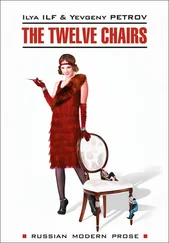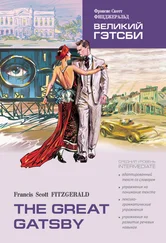“She will not speak!” murmured Mr. Dimmesdale, who, leaning over the balcony, with his hand upon his heart, had awaited the result of his appeal. He now drew back with a long respiration. “Wondrous strength and generosity of a woman’s heart! She will not speak!”
Discerning the impracticable state of the poor culprit’s mind, the elder clergyman, who had carefully prepared himself for the occasion, addressed to the multitude a discourse on sin, in all its branches, but with continual reference to the ignominious letter. So forcibly did he dwell upon this symbol that it assumed new terrors, and seemed to derive its scarlet hue from the flames of the infernal pit. Hester Prynne, meanwhile, kept her place upon the pedestal of shame, with glazed eyes, and an air of weary indifference. She had borne that morning all that nature could endure; and as her temperament was not of the order that escapes from too intense suffering by a swoon, her spirit could only shelter itself beneath a stony crust of insensibility. With the same hard demeanour, she was led back to prison, and vanished from the public gaze within its iron-clamped portal. It was whispered by those who peered after her that the scarlet letter threw a lurid gleam along the dark passage-way of the interior.
After her return to the prison, Hester Prynne was found to be in a state of nervous excitement, that demanded constant watchfulness, lest she should perpetrate violence on herself, or do some half-frenzied mischief to the poor babe. As night approached, it proving impossible to quell her insubordination by rebuke or threats of punishment, Master Brackett, the jailer, thought fit to introduce a physician. He described him as a man of skill in all Christian modes of physical science, and likewise familiar with whatever the savage people could teach in respect to medicinal herbs and roots that grew in the forest. There was much need of professional assistance, not merely for Hester, but still more urgently for the child – who, drawing its sustenance from the maternal bosom, seemed to have drank in with it all mother’s despair. It now writhed in convulsions of pain, and was a forcible type of the moral agony which Hester Prynne had borne throughout the day.
Closely following the jailer appeared that individual, whose presence in the crowd had been of such deep interest to the wearer of the scarlet letter. He was lodged in the prison as the most convenient and suitable mode of disposing of him, until the magistrates should have conferred with the Indian sagamores respecting his ransom. His name was announced as Roger Chillingworth. The jailer, after ushering him into the room, remained a moment, marvelling at the comparative quiet that followed his entrance; for Hester Prynne had immediately become as still as death, although the child continued to moan.
“Prithee, friend, leave me alone with my patient,” said the practitioner. “Trust me, good jailer, Mistress Prynne shall hereafter be more amenable to just authority than you may have found her heretofore.”
The stranger had entered the room with the characteristic quietude of the profession to which he announced himself as belonging. Nor did his demeanour change when the withdrawal of the prison keeper left him face to face with the woman. His first care was given to the child, whose cries, indeed, made it of peremptory necessity to postpone all other business to the task of soothing her. He examined the infant carefully, and then proceeded to unclasp a leathern case, which he took from beneath his dress. It appeared to contain medical preparations, one of which he mingled with a cup of water.
“My old studies in alchemy,” observed he, “and my sojourn, for above a year past, among a people well versed in the kindly properties of simples, have made a better physician of me than many that claim the medical degree. Here, woman! The child is yours, administer this draught, therefore, with thine [7] thine – твой, твои (употр. перед гласными вместо thy )
own hand.”
Hester repelled the offered medicine, gazing with strongly marked apprehension into his face. “Wouldst thou avenge thyself on the innocent babe?” whispered she.
“Foolish woman!” responded the physician, half coldly, half soothingly. “What should ail me to harm this misbegotten and miserable babe? The medicine is potent for good, and were it my child as well as thine! I could do no better for it.”
As she still hesitated, he took the infant in his arms, and himself administered the draught. It soon proved its efficacy, and redeemed the leech’s pledge. The moans of the little patient subsided; its convulsive tossings gradually ceased; and in a few moments it sank into a profound and dewy slumber. The physician next bestowed his attention on the mother. With calm and intent scrutiny, he felt her pulse, looked into her eyes – a gaze that made her heart shrink and shudder, because so familiar, and yet so strange and cold – and, finally, satisfied with his investigation, proceeded to mingle another draught.
“I have learned many new secrets in the wilderness, and here is one of them – a recipe that an Indian taught me, in requital of some lessons of my own, that were as old as Paracelsus [8] Paracelsus – Парацельс (1493–1541), знаменитый врач, философ, естествоиспытатель, алхимик
. Drink it! It may be less soothing than a sinless conscience, but it will calm the swell and heaving of thy passion.”
He presented the cup to Hester, who received it with a slow, earnest look into his face; not precisely a look of fear, yet full of doubt.
“I have thought of death,” said she – “have wished for it. Yet, if death be in this cup, I bid thee think again. See! It is even now at my lips.”
“Drink, then,” replied he, still with the same cold composure. “Dost thou know me so little, Hester Prynne? Even if I imagine a scheme of vengeance, what could I do better for my object than to let thee live so that this burning shame may still blaze upon thy bosom?” As he spoke, he laid his long fore-finger on the scarlet letter, which forthwith seemed to scorch into Hester’s breast, as if it had been red hot. He noticed her involuntary gesture, and smiled. “Live, therefore, and bear about thy doom with thee! And, that thou mayest live, take off this draught.”
Without further expostulation or delay, Hester Prynne drained the cup, and, at the motion of the man of skill, seated herself on the bed, where the child was sleeping; while he drew the chair and took his own seat beside her. She could not but tremble at these preparations; for she felt that – having now done all that humanity, he was next to treat with her as the man whom she had most deeply and irreparably injured.
“Hester,” said he, “I ask not how thou hast ascended to the pedestal of infamy on which I found thee. The reason is not far to seek. It was my folly, and thy weakness. I – the book-worm of great libraries – a man already in decay – what had I to do with youth and beauty like thine own? Misshapen from my birth-hour, how could I delude myself with the idea that intellectual gifts might veil physical deformity in a young girl’s fantasy? Men call me wise. If sages were ever wise in their own behoof, I might have foreseen all this. From the moment when we came down the old church-steps together, a married pair, I might have beheld the bale-fire of that scarlet letter blazing at the end of our path!”
“Thou knowest [9] know+est (суффикс 2 л., ед. ч., наст. вр.) – ( уст. ) знаешь
,” said Hester – for, depressed as she was, she could not endure this last quiet stab at the token of her shame – “thou knowest that I was frank with thee. I felt no love, nor feigned any.”
Читать дальше












